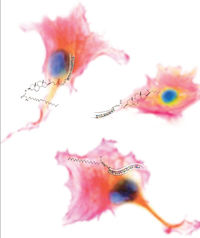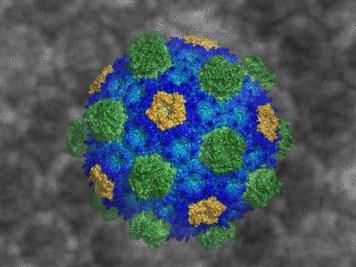Thermo Fisher Scientific acquires Open Biosystems
Creating unmatched RNAi platform
Thermo Fisher Scientific Inc. announced that it has acquired Open Biosystems, Inc., a provider of RNA interference (RNAi), gene expression and protein detection products for life science research and drug discovery and development. The acquisition significantly expands Thermo Fisher Scientific's leadership position in the growing RNAi field.
RNA interference is a method for blocking, or silencing, the expression of genes to study their function and to develop therapies targeting genes that may cause disease. Open Biosystems, which is based in Huntsville, Alabama, specializes in short-hairpin RNA (shRNA) and viral-vector systems for delivering shRNA into living cells. The company offers complete shRNA libraries for the entire human and mouse genomes. Correspondingly, Thermo Fisher Scientific is a leader in small-interfering RNA (siRNA), sold through its Thermo Scientific Dharmacon line. Together, shRNA and siRNA represent the two most widely used RNAi platforms.
The acquisition of Open Biosystems further strengthens our market-leading position in synthetic RNAi products with highly complementary technologies based on advanced shRNA, said Marijn E. Dekkers, president and chief executive officer of Thermo Fisher Scientific. This combination brings together leading technologies for analyzing gene function, allowing us to create a powerful tool set for our customers who are performing cutting-edge life science research.
In addition to its RNAi business, Open Biosystems offers extensive collections of complementary DNA (cDNA) and open reading frame (ORF) vectors for gene expression, as well as custom antibody services for detection of changes in cellular protein levels. Open Biosystems, which had annual revenues of approximately $14 million in 2007, will be integrated into Thermo Fisher's Analytical Technologies Segment.
Other news from the department business & finance
Most read news
More news from our other portals
See the theme worlds for related content
Topic world Protein analytics
Protein analytics provides a deep insight into these complex macromolecules, their structure, function and interactions. It is essential for discovering and developing biopharmaceuticals, understanding disease mechanisms, and identifying therapeutic targets. Techniques such as mass spectrometry, Western blot and immunoassays allow researchers to characterize proteins at the molecular level, determine their concentration and identify possible modifications.

Topic world Protein analytics
Protein analytics provides a deep insight into these complex macromolecules, their structure, function and interactions. It is essential for discovering and developing biopharmaceuticals, understanding disease mechanisms, and identifying therapeutic targets. Techniques such as mass spectrometry, Western blot and immunoassays allow researchers to characterize proteins at the molecular level, determine their concentration and identify possible modifications.






















































